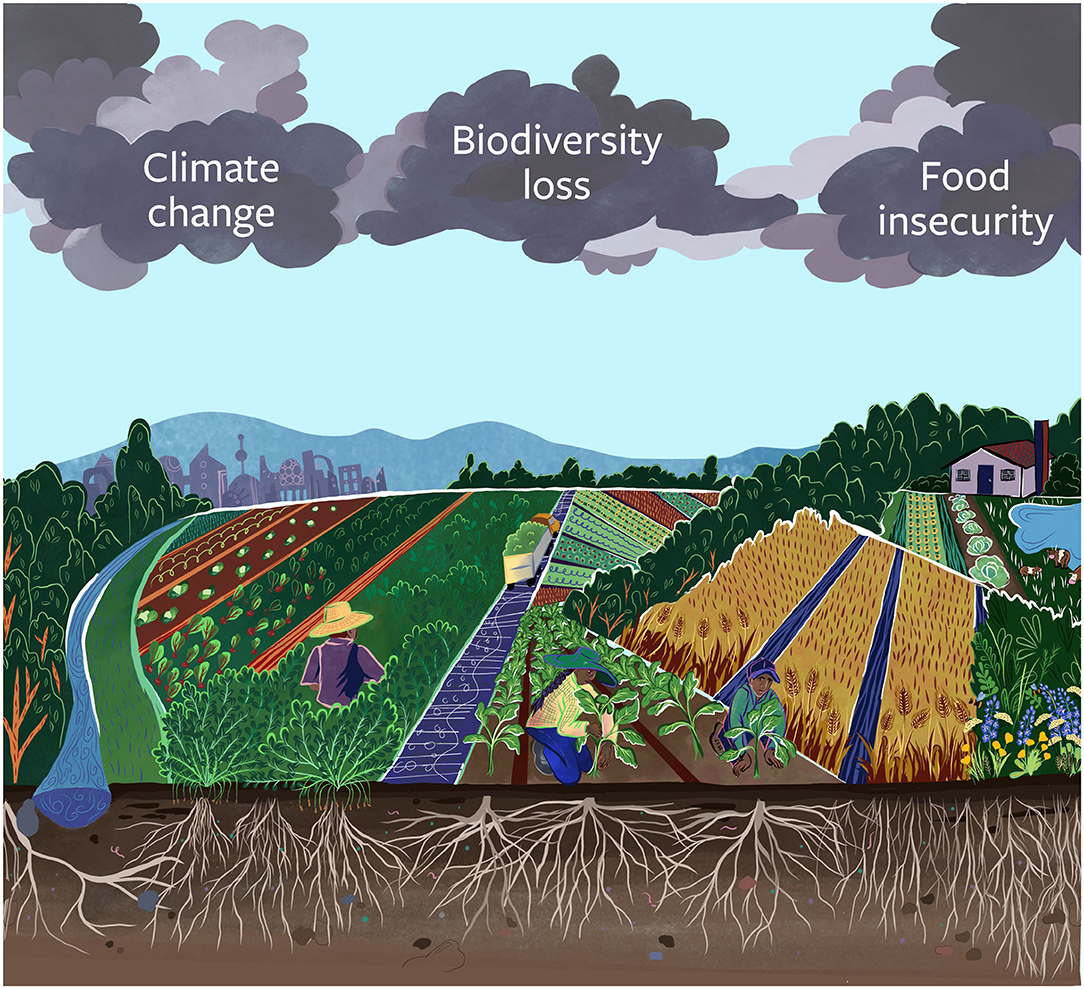Discover How Farming Impacts Our Planet’s Systems

Picture this: every morning, as you enjoy your breakfast, where does your food originate from? The fields and farms that nourish us are more than just sources of sustenance—they are key players in shaping our planet's ecosystems and climate. But how does farming affect Earth's systems in ways we might never consider? Let's take a comprehensive look at how agriculture changes ecosystems, its role in biodiversity loss, and how farming practices can either exacerbate or mitigate these effects.
Understanding the Core Impact: How Farming Affects the Earth's Systems
First, let's delve into how agriculture shapes the environment on a grand scale. Farming doesn't just alter landscapes; it affects our entire biosphere from the ground to the sky. This involves various elements, from soil quality and erosion to greenhouse gas emissions and biodiversity.
The Role of Soil Erosion in Farming Impact
When you think of farming, you probably envision sprawling fields of crops, bustling with life. But what happens beneath the surface isn’t as visible. Soil is a delicate balance of life, and farming soil erosion can strip away this precious resource. Imagine the soil as the Earth's skin, protecting it from harsh elements. When this skin is torn away, the land is left vulnerable to erosion by wind and water.
Farming practices such as intensive tilling and over-grazing can accelerate soil erosion. Without a healthy layer of topsoil, crops struggle to grow, leading to lower yields and requiring more nutrient-rich fertilizers. This setback creates a vicious cycle, harming the land's productivity and sustainability.
According to the United Nations, we are losing soil faster than it can be replenished. This is alarming, considering soil takes 500 years to form naturally and is crucial for food production. To mitigate this, sustainable farming practices like crop rotation and conservation tillage are essential.
Greenhouse Gases from Farming: The Invisible Problem
Next, let's talk about the invisible, but very real, contribution of farming to climate change. When cows belch and ruminants produce methane, it’s more than just an agricultural nuisance—these activities contribute significantly to greenhouse gases from farming. Methyl compounds emitted by those animals trap heat in the atmosphere, driving global warming.
Furthermore, uncontrolled fertilizers release nitrous oxide, another potent greenhouse gas. And deforestation for agricultural expansion adds to the problem by reducing the number of trees available to absorb carbon dioxide. This dual impact means less CO2 is being absorbed and more is being emitted.
The World Resources Institute estimates that livestock production alone contributes around 14.5% of all human-associated greenhouse gas emissions. In a world where we are increasingly concerned about climate change according to the Intergovernmental Panel on Climate Change (IPCC), isn’t it time we reevaluate how farming affects Earth's systems?
How Agriculture Changes Ecosystems: A Double-Edged Sword
Now let's turn to the intricate web of life—biodiversity. How does agriculture change ecosystems and what does this mean for us? Many farming practices involve monocropping, where one type of crop covers large areas. While this maximizes yield for a short period, it devastates biodiversity.
Monocropping eliminates the diverse array of plant species that support various insects, birds, and other wildlife. As a result, ecosystems become fragile and less resilient to pests and diseases, which can lead to increased use of pesticides and further degradation of the environment.
Further, how farming impacts on biodiversity is evident in habitat loss, including the destruction of forests and wetlands. according to the Environmental Defense Fund (EDF), more than half of the world’s wetlands have disappeared in the last century due to agricultural expansion. This loss of habitats not only leads to the loss of species but also disrupts ecological balance, impacting pollination, nutrient cycling, and pest control.
Towards Sustainable Farming: Repairing the DamageBut all is not lost. There is a growing movement towards sustainable farming, aiming to minimize the adverse effects of traditional agriculture. So, what can we do to change the narrative on how farming affects Earth's systems?
Practicing Conservation and Regenerative Agriculture
Conservation and regenerative agriculture practices focus on restoring soil health and biodiversity. These methods include planting cover crops, reducing tillage, and integrating livestock with crop production.
Cover crops, for example, protect soil from erosion and improve its organic content, making it more fertile. Reduced tillage minimizes soil disturbance, reducing the loss of vital microorganisms.
Regenerative agriculture, champions plants as carbon sinks, helping to sequester carbon from the atmosphere. This can offset some of the farming-related greenhouse gas emissions and combat climate change.
The Power of Agroforestry and Permaculture
Agroforestry and permaculture are other innovative approaches that offer a glimmer of hope. Agroforestry integrates trees with crops and livestock, creating a more resilient and diverse agricultural system. Trees provide habitat for wildlife, improve soil health, and absorb carbon.
Permaculture, on the other hand, mimics natural ecosystems, promoting biodiversity and sustainability. It incorporates permanent agriculture designs that are uniquely suited to local environments, minimizing environmental impact.
Both practices can significantly improve how farming affects the earth’s systems, fostering a more balanced and sustainable relationship between humans and the environment.
Conclusion
How farming affects the Earth's systems is complex and far-reaching. From soil erosion and greenhouse gases to biodiversity loss, the impact is profound. However, it's not all doom and gloom. Sustainable farming practices offer a pathway to mitigate these effects, ensuring that our agricultural practices can nourish us without depleting our planet.
So, let's challenge ourselves to think beyond our morning coffee or lunch sandwich. Let's consider the bigger picture and explore how our personal choices and support for sustainable farming can shape a healthier planet. Click on the links below to learn more about how you can contribute and make a difference.
0 Response to " Discover How Farming Impacts Our Planet’s Systems"
Post a Comment